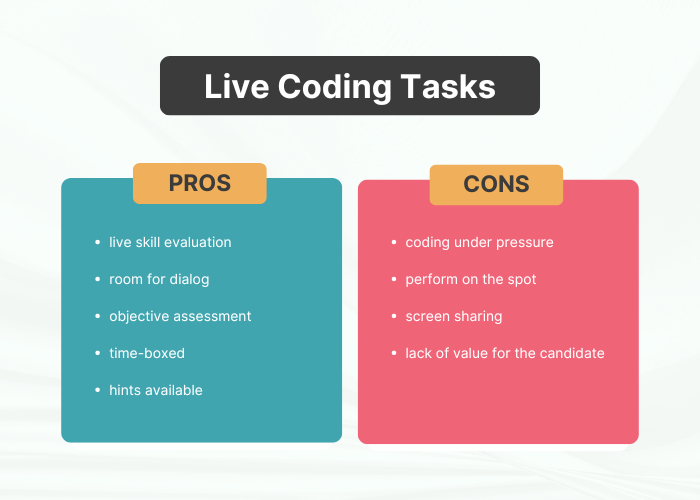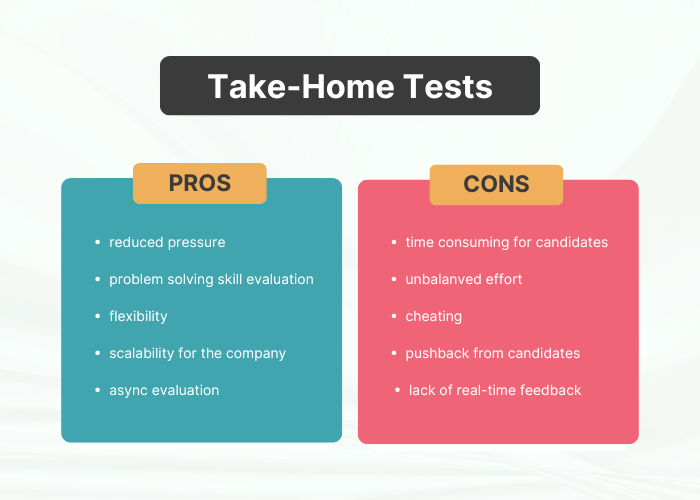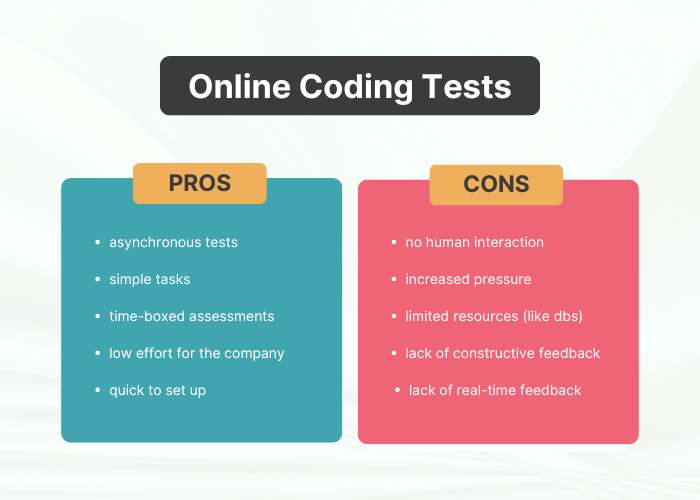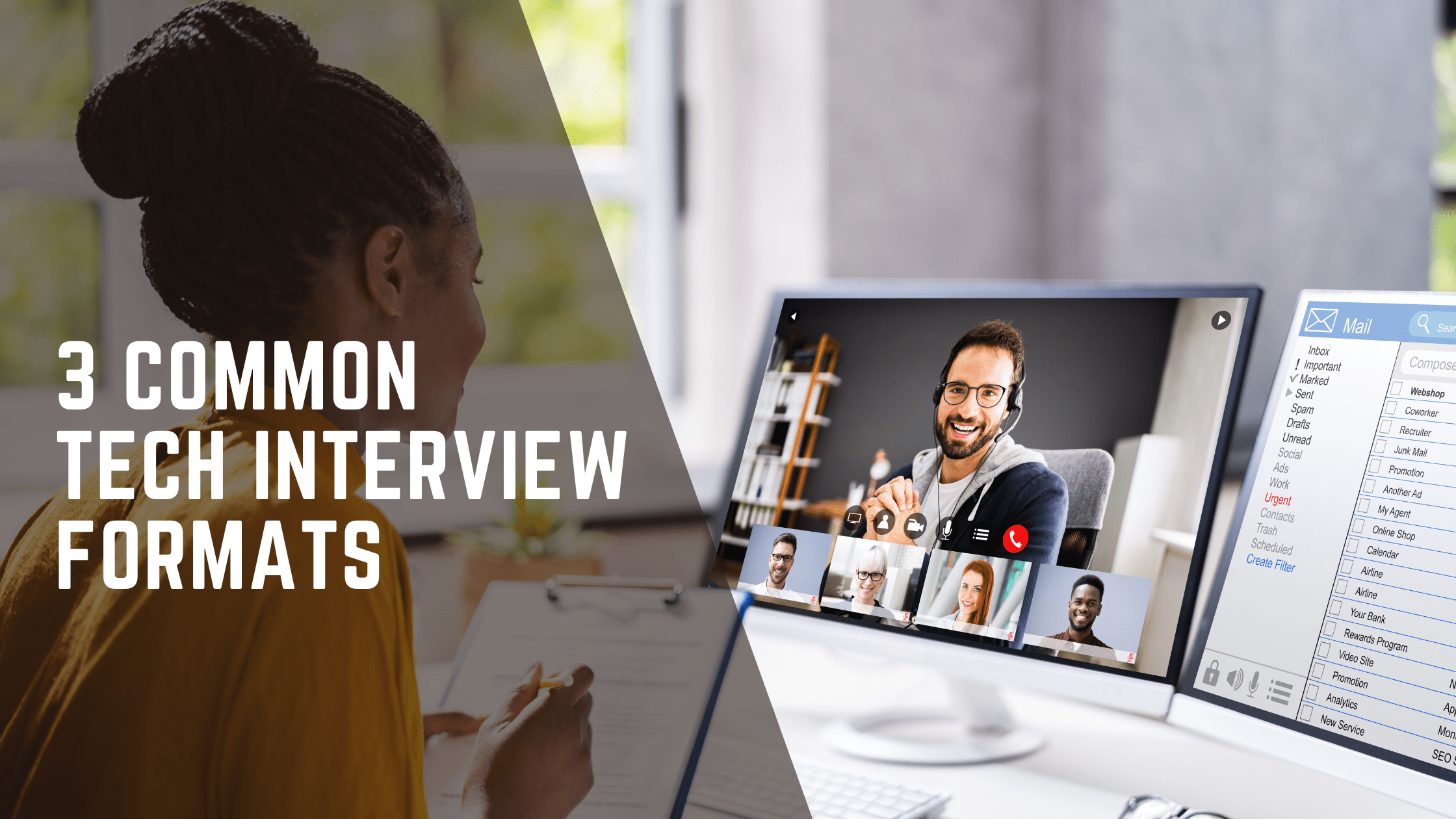The first technical interview tests the hard skills of the candidate.
The HR screen, the step in the interview process before that, exists to make sure that the candidate has the skills and knowledge required to be great at the job.
Here are 3 modern ways to test developers while building a great candidate experience.
- Live coding tasks
- Take-home challenges
- Online coding tests
Live Coding Tasks
Live Coding tasks are usually the last part of the first technical interview with a candidate. They are time-boxed (from 30 minutes up to 1.5 hours).
The job of the interviewer, who is an experienced technical person, is to help the candidate give their best. This means the interviewer is there to provide hints, support and work as a pair programming buddy to the candidate.
DOS
Make it work-related, avoid
Send constructive feedback after the interview.
Deliver value - get the candidate excited about the small task you ask them to complete.
DON'TS
Don't make it a time sink.
Don't give the candidate a task which will teach them nothing.
Don't set unrealistic goals. Like asking the candidate to create a production-ready application. This just won't do.
Don't use interviews to get free labor. If you can use the output the candidate delivers to you at work, pay for their effort, and give them thanks.

Take-Home Tests
Take-home tests, or take-home challenges as some call them, is a practical exercise given to the candidate to work on from home. They can consume from a few hours up to 2 days of work before the candidate meets with the interviewing team to present their findings and results.
DOS
Pay the candidate for the hours taken to complete the task.
Offer constructive value.
If you are going to use the output they deliver anywhere in the company, let the candidate know.
DON'TS
Consider them as a way to get free labor.
Don't give the candidate a task which will teach them nothing.
Don't set unrealistic goals. Like asking the candidate to create a production-ready application. This just won't do.

Online Coding Tests
Online coding tests are simulated problems done for a set amount of time. Many online platforms offer pre-recorded questions and challenges from which the hiring team can choose from. The candidates then enter in the platform and do the work there. When completed, the candidates output is sent to the employer for evaluation.
DOS
The work is done via browser.
This is a scalable solution for companies which expect a high number of applicants per job opening.
DON'TS
Don't fully reflect real-world work.
Sessions could be recorded.
Candidates could cheat and present someone else's work.


